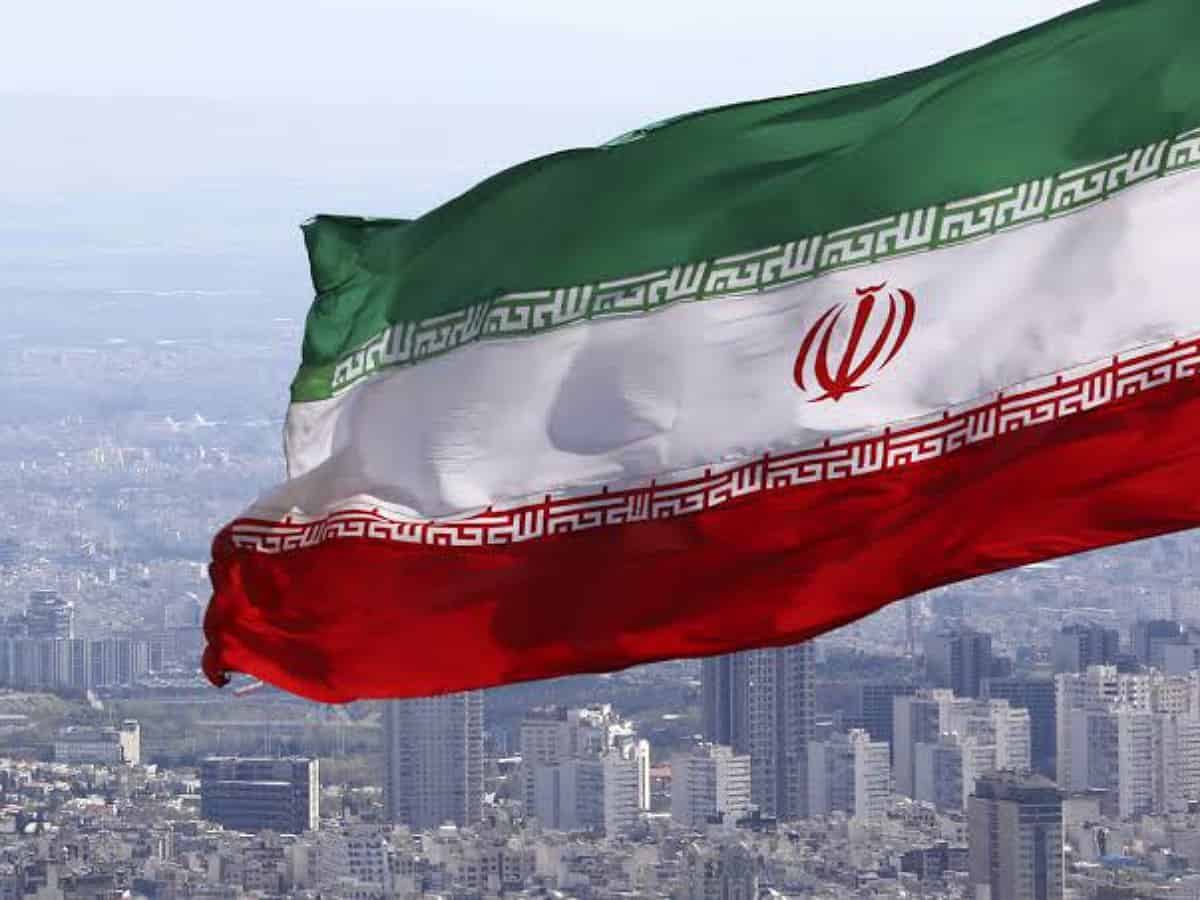[Islamabad] The 23rd meeting of the Council of Heads of Government (CHG) of the Shanghai Cooperation Organization (SCO) concluded on Wednesday in Islamabad, reaffirming member states’ commitment to enhanced regional cooperation.
Established in 2001 by China and Russia, the SCO’s membership has since expanded to include Kazakhstan, Kyrgyzstan, Tajikistan, Uzbekistan, Pakistan, India, and Iran. With both China and India as members, the SCO represents about 40% of the world’s total population.
Another notable aspect of the SCO is its inclusion of four global nuclear powers: China, Russia, Pakistan, and India.
Building a stable future
Pakistani Prime Minister Shehbaz Sharif chaired the CHG meeting during the conference and urged member states to work together, emphasizing the “need for greater connectivity, poverty reduction, climate action, and business collaboration for regional prosperity.”
He advocated “expanding projects like the Belt and Road Initiative to enhance trade and infrastructure” and called for “collective efforts to address poverty and climate challenges, highlighting Pakistan’s vulnerability to climate disasters.”
Sharif also stressed the importance of reforming global financial systems and supported using mutual currencies within the SCO.
After congratulating Russian Prime Minister Mikhail Mishustin on assuming the rotating chairmanship for 2025 and assuring him of Pakistan’s full support, Sharif announced that the SCO’s next CHG meeting would take place in Russia in 2025.
In addition to the Russian prime minister, other world leaders who attended the summit were the Chinese premier, the prime ministers of Belarus, Kazakhstan, Tajikistan and Uzbekistan, as well as the chairman of the Cabinet of Ministers of Kyrgyzstan, the Iranian minister of Industry, Mines, and Trade, and India’s foreign minister.
The heads of government from the SCO member countries signed the meeting’s Joint Declaration documents, which contain decisions aimed at enhancing regional economic and trade cooperation. The documents also ensure that the SCO’s permanent institutions function effectively.
According to the Joint Declaration, the SCO member states “advocate for the right of peoples to independently and democratically determine their political, social, and economic development.”
The delegates “reaffirmed their commitment to peacefully resolving differences and disputes through dialogue and consultations.”
Additionally, the delegates expressed their intention to promote a UN General Assembly resolution in connection with the SCO initiative “On World Unity for a Just Peace, Harmony, and Development.”
On the sidelines of the SCO conference, the heads of delegations held separate meetings with Sharif and General Syed Asim Munir, Pakistan’s chief of army staff. During these discussions, they focused on the regional security situation and strategies for counter-terrorism.
Before the conference, there was a widespread expectation among analysts for substantial advancements on several fronts, including the Iran-Israel conflict, the Russia-Ukraine war, and, notably, the mending of ties between Pakistan and India.
However, Mumtaz Zahra Baloch, the spokesperson for Pakistan’s Foreign Office, clarified that the SCO summit’s dialogues did not cover politics but, instead, revolved around regional connectivity, economic issues, commerce, and environmental challenges.
She pointed out that “the conference’s agenda steered clear of politics, underscoring the commitment to fostering economic cooperation.”
The Media Line spoke with various experts regarding different facets of the SCO conference.
Syed Qandil Abbas, an Islamabad-based political analyst and professor at the School of Political and International Relations (SPIR) at Quaid-i-Azam University, told The Media Line: “The Shanghai Cooperation Organization (SCO) holds the potential to forge novel strategies for resolving conflicts at both the global and regional scales, particularly as the power equilibrium slowly transitions from Western dominance to Eastern prominence.”
He further said that “if member countries prioritize improving their economic conditions over military expenditures, it could lead to a more positive and stable regional outlook. The alliance of the world’s four nuclear powers within the SCO could pose challenges to the existing Western-dominated world order.”
Highlighting “growing global frustration,” Abbas noted the failure of the UN and the Security Council to achieve a cease-fire in Gaza. “In this context, the SCO could play a significant role,” he said.
Abbas underlined “the complexity of the current global dynamics, where China, Russia, and Iran are actively working to challenge the existing global order, while the United States, Israel, and their allies stand on the opposing side. China and Russia have been supportive of Iran’s stance within this shifting geopolitical landscape.”
Pointing out that “China and Russia have not recognized the economic sanctions imposed by the United States and Western nations, continuing their trade relations with Iran,” Abbas said that the economic cooperation discussed among SCO countries could potentially weaken the impact of US sanctions.”
Furthermore, Abbas observed that while the US and its Western allies attempt to isolate Russia, Moscow is leveraging platforms like the SCO to forge alliances and strengthen regional ties, countering its diplomatic isolation.
He added that “the SCO also presents a valuable opportunity for member states such as Pakistan and India to enhance their relations through diplomatic engagement.”
Meanwhile, Noureen Akhter, a policy consultant at the Islamabad Policy Research Institute (IPRI), told The Media Line: “Despite the absence of a political agenda at the SCO summit, “the focus on economic collaboration suggests a strategic pivot among member states to enhance trade, infrastructure development, and investment opportunities, fostering stability and growth in the region.”
“This pragmatic approach underscored the SCO’s ability to adapt its focus from political to economic concerns, responding effectively to the evolving dynamics of international relations in a multipolar world,” she added.
“The meeting could reshape approaches to cooperation, adapting to a multipolar world led by non-Western alliances.” Akhter also noted that “the summit was a great opportunity for Pakistan to demonstrate its activity on the world stage and its relevance in the region.”
“The SCO meeting demonstrated Pakistan’s ability to organize summits and displayed its intention of contributing positively toward the SCO’s peace efforts and the spirit of integrating its member countries for sustainable development,” she added.
Amrita Saha, a Kanpur India-based regional defense and security analyst told The Media Line: “The SCO should be used as a platform to reach a peaceful solution, especially since it’s been over a year since the October 7 Hamas-Israel conflict.”
She emphasized that “the SCO should serve as a platform for joint efforts to combat regional terrorism, especially given the rise of the Taliban and other groups in Afghanistan, which poses a threat to all countries in the area.”
According to Saha, “Russia should play a significant role in contributing to efforts that could facilitate negotiations between Russia and Ukraine, with NATO acting as a mediator rather than escalating the conflict.”
She emphasized that with key members such as Russia, China, India, Pakistan, and Central Asian states, the SCO has the potential to collaborate for the region’s stability.
“The global order needs to shift away from the USA-Russia-China axis, as numerous conflicts have evolved into proxy wars affecting various regions,” Saha asserted.
She stressed that “the focus should be on countering terrorism and radicalization while promoting international cooperation.”
Azeem Khalid a PhD scholar and assistant professor of international relations at COMSATS University Islamabad, told The Media Line: “The coalition’s effectiveness in achieving its goals and objectives is still a matter of debate. However, a positive view of the alliance’s existence.”
He noted that “the countries that emerged from the Soviet Union were weak in various aspects and need support. The formation of this organization encouraged these nations to recognize that ongoing cooperation could lead to improvement and a reduction of external influence.”
According to Khalid, “While it is not a platform specifically designed to resolve bilateral disputes, the SCO offers leaders a chance to come together and discuss common concerns. The meeting in Islamabad served primarily as an opportunity for such discussions.”
Pakistan hosted the SCO summit amid a surge of opposition protests and a series of terrorist attacks, which included recent assaults on Chinese nationals.
Tight security arrangements were implemented in Islamabad and its twin garrison city Rawalpindi ahead of and during the SCO summit, with major highways completely closed to traffic.
The Pakistani army’s Quick Response Force was deployed in the federal capital a week in advance.







